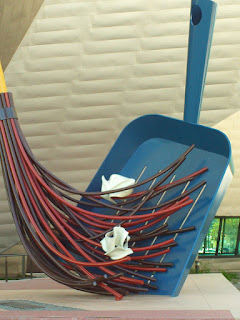Text from the Office of California Assemblyman Member Juan Arambula
BackgroundThroughout the United States’ involvement in the Vietnam War, Southeast Asians were courageous allies of the U.S. in the struggle against the spread of communism. For example, many Hmong, Lao, and Mien people were actively recruited and trained by the Central Intelligence Agency to take up arms against the communist regime in support of the United States’ national security objectives in what is known as the "Secret Army" in Laos.
Throughout the course of the Vietnam War and its aftermath, thousands of Southeast Asian men, women, and children from Vietnam, Cambodia, and Laos died while supporting the United States’ effort to contain the spread of communism.
In 1975, after the United States’ involvement in the Vietnam War, many Southeast Asians, such as the Hmong, Mien, Lao, Cambodian and Vietnamese, faced life-threatening hardship and oppression, forcing them to leave their homes as refugees.
Southeast Asian communities are now spread around the world, including the U.S. where the Hmong, Lao, and Mien have significant communities in California; the largest concentration of Vietnamese are in California and Texas; and large numbers of Cambodian refugees reside in California and Massachusetts.
PurposeSoutheast Asians should be recognized for their valuable contributions to the cultural, civic, and economic well-being of California. Students need to be taught about the sacrifices groups have made to ensure the security and prosperity of the U.S.
Current law classifies instruction in social sciences to include the role and contributions of men, women and ethnic groups to the development of California and the United States. Instruction also emphasizes on portraying the role of these groups in current society.
AB 78 (Reyes, Chapter 44, Statutes of 2003) encouraged instruction on the ‘‘Secret War’’ in Laos and the role of Southeast Asians in that war. AB 2064 would go further and require the State Board of Education to adopt textbooks and instructional materials to comply with AB 78.
CA has benefited immensely from the cultural richness and patriotism of the Southeast Asian community, including contributions from a growing group of economic, political, and civic leaders.
SummaryAB 2064 would require the State Board of Education and the Curriculum Development and Supplemental Materials Commission to adopt textbooks and instructional materials to include instruction on the Vietnam War.
Specifically, this bill requires textbooks and instruction materials to include the "Secret War" in Laos, the role of Southeast Asians in that war, and the refugee/immigrant/new American experience as a result of the war. This curriculum would be adopted in the next submission cycle.
The curriculum framework development and adoption of instructional materials was last made in 2005. The framework evaluation criteria cycle will begin in 2009 with the next adoption cycle in 2011.
SupportersCenter for Language Minority Education and Research
Central California Forum on Refugee Affairs
CSU, Sacramento Division of Social Work
Fresno Center for New Americans
Fresno City Councilmember Blong Xiong
Fresno County Supervisor Henry Perea
Fresno Unified School District
Hmong National Development, Inc.
Kings Canyon Unified School District
Lao Iu Mien Culture Association
Lao Veterans of America Institute
Law Offices of Paul C. Lo
National Association for the Education and Advancement of Cambodian, Laotian, and Vietnamese Americans
Orange County Asian and Pacific Islander Community Alliance
Sacramento Lao Family Community
San Jose City Councilmember, Madison Nguyen
Southeast Asia Resource Action Center
Stone Soup Fresno
86 Individuals
OppositionNone on file




 The first appearance in the Pacific Northwest for Bolinao 52 brought warm reception and strong bonding with the Asian local community. We were invited by Chris Tran, an event coordinator, to Seattle for a fundraiser to benefit Asian Counseling and Referral Service,
The first appearance in the Pacific Northwest for Bolinao 52 brought warm reception and strong bonding with the Asian local community. We were invited by Chris Tran, an event coordinator, to Seattle for a fundraiser to benefit Asian Counseling and Referral Service, 






















